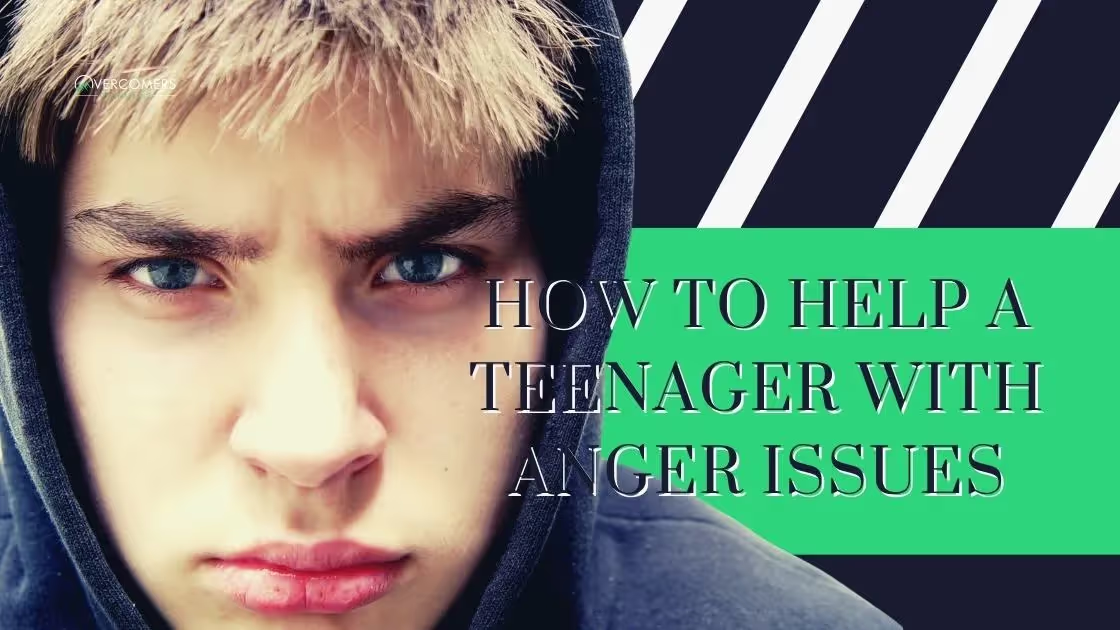Before you can start to help your teenager with their anger, it's important to understand what might be causing it. There are many potential causes of teen...

Before you can start to help your teenager with their anger, it's important to understand what might be causing it. There are many potential causes of teen anger, including:
This is an important step in learning how to help a teenager with anger issues.
By understanding the causes you can better help your teen deal with their anger.

One of the best things you can do to help a teenager with anger issues is to talk about anger constructively.
This means avoiding judgmental language and instead focusing on problem-solving.
For example, you might say something like, "I noticed that you got really angry when your sister took your phone.
Can we brainstorm some solutions to that problem?"
If your teenager is hesitant to talk about their anger, you can try writing down your thoughts and feelings.
This can be a helpful way to start a conversation about anger constructively.
Many different warning signs may indicate your teenager is struggling with anger.
These can include:
If you notice any of these warning signs in your teenager, it's important to talk to them about their anger.
There are many different ways that teenagers can deal with anger in a positive way.
Some of these coping mechanisms include:
It's important to encourage your teenager to find a coping mechanism that works for them.
This may require trial and error, but it's worth it to help your teenager learn how to deal with their anger in a positive way.

If you're not sure how to help a teenager with anger issues, the best thing you can do is talk to them about their anger.
Anger is a normal emotion, and it's important to provide a safe space for your teenager to express their thoughts and feelings.
You might say something like, "I noticed that you've been really angry lately. I just want you to know that I'm here for you and I want to help you through this."
By talking to your teenager about their anger, you can help them feel understood and supported.
If you're concerned about your teenager's anger, it's important to seek professional help.
A professional can assess the severity of the problem and provide additional resources and support.
If you're not sure where to start, you can talk to your teenager's doctor or mental health professional.
Learning how to help a teenager with anger issues is an important task for any parent.
By taking the time to understand the causes of teen anger and identify positive coping mechanisms, you can make a big difference in your teenager's life.
The information in this article is meant to be used for informational uses only.
Please contact a licensed medical professional for official medical advice.
A licensed professional can help guide you and give you the tools you need to help improve your mental health or relationship situations.
How can I help my teenager with anger issues?
The best thing you can do to help a teenager with anger issues is to talk about anger constructively.
This means avoiding judgmental language and instead focusing on problem-solving.
For example, you might say something like, "I noticed that you got really angry when your sister took your clothes without asking.
Can we brainstorm some solutions to that problem?"
What are some warning signs that a teenager is struggling with anger?
There are many different warning signs of teen anger, but some of the most common include outbursts of anger, breaking things or lashing out physically, hurting themselves or others, using drugs or alcohol to cope with anger, withdrawing from friends and activities they used to enjoy, skipping school or getting into trouble at school, having difficulty concentrating, sleeping too much or too little.
What are some positive coping mechanisms for teen anger?
There are many different ways that teenagers can deal with anger in a positive way.
Some of these coping mechanisms include: talking to a trusted friend or adult about their feelings, writing down their thoughts and feelings, listening to music, participating in regular physical activity, and practicing deep breathing or relaxation techniques.
What should I do if I'm concerned about my teenager's anger?
If you're concerned about your teenager's anger, it's important to seek professional help.
A professional can assess the severity of the problem and provide additional resources and support.
If you're not sure where to start, you can talk to your teenager's doctor or mental health professional.
If you're concerned about your teenager's anger, the best thing you can do is talk to them about it.
Anger is a normal emotion, and it's important to provide a safe space for your teenager to express their thoughts and feelings.
If the anger seems to be causing problems in your teenager's life, it's important to seek professional help.
A professional can assess the severity of the problem and provide additional resources and support.
You can teach your child persistence by modeling the behavior yourself, encouraging them to take risks, setting goals and tracking progress, praising effort, and providing support and guidance.